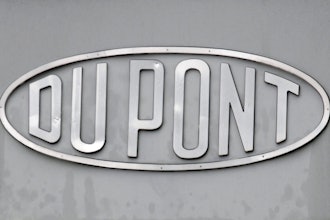SALEM, Ore. (AP) — Executives from clean-energy companies asked Oregon lawmakers Monday to continue the state's clean fuels program beyond its expiration in 2015, saying they need the Legislature's blessing to help their budding industry take root.
They faced off with oil companies and large-volume fuel users who implored lawmakers to hold off, saying the state is moving too fast and risks raising fuel costs significantly with an unworkable policy.
Oregon was one of the first states to require fuel producers to reduce the amount of carbon emissions associated with their fuels. But state officials say lawmakers must remove the program's 2015 expiration, or sunset, date before the program can be fully implemented.
Supporters dangled the prospect of new green-energy jobs in a hearing before the Senate Environment and Natural Resources Committee, which heard testimony but took no action.
"We would love to expand our operations, we'd love to build more stations in Oregon, but we can't make further investments until the sunset date is lifted," said Spencer Richley, policy and clean energy associate at Clean Energy Fuels, a Seal Beach, Calif.-based company that has two natural gas fueling stations in Oregon.
Opponents said the legislation is unneeded, in part because the federal government has increased incentives for clean fuels and required substantial improvements in fuel economy for cars and trucks.
"We have a program that is infeasible, costly, and is duplicative of the federal government," said Brian Doherty, a lobbyist for the Western States Petroleum Association, a coalition of oil companies.
A similar law is on hold in California amid a legal challenge. A federal judge ruled last year that it illegally discriminates against out-of-state fuel producers, and the case is now pending before the 9th U.S. Circuit Court of Appeals.
Critics want Oregon to wait until the courts sort out California's program, but supporters say Oregon's law is different. They insist the California version probably could survive with changes, even if the appellate judges uphold the lower court's ruling.
Oregon's program is being implemented in two phases. The Environmental Quality Commission in December voted to force fuel importers to report a carbon-intensity score. The metric aims to quantify the pollution associated with a particular fuel over its entire life cycle, including the electricity used to produce it and the fuel used to transport it to Oregon.
State officials say they'll begin requiring fuel providers to reduce the carbon content of fuels only if the Legislature decides to continue the program. Producers would have to reduce the carbon content of their fuel by 10 percent from 2010 levels.
Fuel companies could comply by blending in more renewable fuels or by substituting alternative fuels with lower carbon intensity. Companies producing low-carbon fuels would be able to sell pollution credits to higher-polluting fuel producers.
Proponents hope the requirements will spur new clean-fuel innovations and speed the adoption of alternative-fuel technologies.
"We're making additional investments to make even lower-carbon fuels in California. We're putting money and jobs in California. We're like to do that here," said Tom Koehler of Pacific Ethanol, which has an ethanol plant in Boardman.
Critics say it would be impossible to meet the 10 percent reduction targets based on the fuels and technologies currently available. Under Oregon law, 10 percent of retail gasoline already must be ethanol, and 5 percent of diesel must be biodiesel, and the pollution-reductions associated with that requirement won't count toward the clean-fuels standards.
"We will sell whatever it takes to move vehicles up and down the road or in and out of fields," said Ralph Poole, who runs a fuel-distribution company based in Ontario. "We do not need the Legislature to tell the manufacturers of fuel, the manufacturers of vehicles how that needs to happen."






















